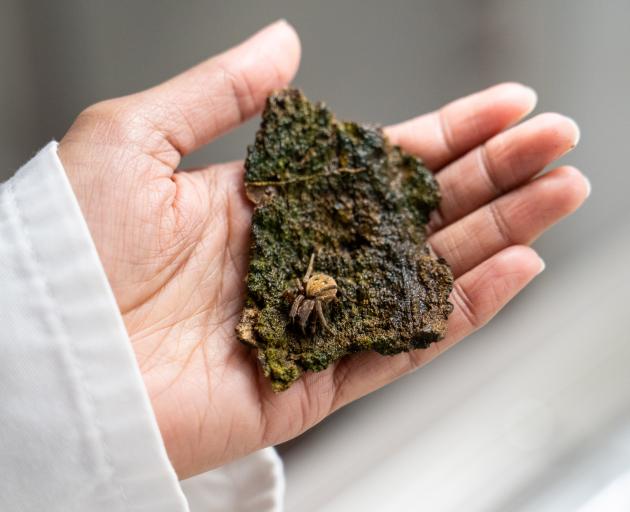Science
Unraveling the Mystery: Parasitic Worms Transforming Spiders

A fascinating study is revealing the impact of parasitic worms on spider populations in New Zealand. Usha Mendis, a PhD student at Lincoln University, is investigating the effects of mermithids, a type of parasitic nematode, that turn spiders into what can be described as “zombies.” These nematodes infect a variety of invertebrates, including caddisflies, mayflies, and grasshoppers, raising concerns about their potential impact on the ecosystem.
Mendis has identified three distinct types of spiders that carry these parasites. She emphasizes the importance of understanding the relationship between the mermithids and spiders, particularly given that over 90% of New Zealand’s spiders are endemic. “If something were to happen to them, it would not be good for our biodiversity,” Mendis stated. Spiders play a crucial role in the food chain, and the presence of mermithids disrupts this balance.
The process through which the nematodes affect spiders is slow and detrimental. Infected spiders exhibit physical changes, often growing larger limbs and swollen abdomens. “They can be very abnormal. Their legs get shorter but thicker, the spider is physically changing,” Mendis noted. The only definitive way to identify an infected spider is to wait until it dies, allowing the nematode to emerge and continue its life cycle.
Researchers remain puzzled about how the nematodes initially enter the spiders. Mendis is dedicated to uncovering these details. The nematodes rely on their spider hosts for energy and nutrients, growing within them until they are ready to reproduce. They seek moist environments to facilitate their development, which leads the infected spiders to search for water sources. Mendis uses water traps to collect the nematodes, aiming to enhance understanding of their lifecycle.
Since their first identification in New Zealand just 35 years ago, knowledge about mermithids remains limited. Mendis encourages re-evaluating perceptions of spiders, highlighting their essential role in maintaining ecosystem balance. “Spiders may look disruptive and creepy, but they’re not the enemy,” she stated. “They’ve got their own problems to deal with.”
As Mendis continues her research, the implications of her findings could be significant for biodiversity in New Zealand. Understanding the dynamics between these parasites and their hosts is essential for preserving the intricate balance of the ecosystem.
-

 World1 week ago
World1 week agoPrivate Funeral Held for Dean Field and His Three Children
-

 Top Stories2 weeks ago
Top Stories2 weeks agoFuneral Planned for Field Siblings After Tragic House Fire
-

 Sports3 months ago
Sports3 months agoNetball New Zealand Stands Down Dame Noeline Taurua for Series
-

 Entertainment3 months ago
Entertainment3 months agoTributes Pour In for Lachlan Rofe, Reality Star, Dead at 47
-

 Entertainment2 months ago
Entertainment2 months agoNew ‘Maverick’ Chaser Joins Beat the Chasers Season Finale
-

 Sports3 months ago
Sports3 months agoSilver Ferns Legend Laura Langman Criticizes Team’s Attitude
-

 Sports1 month ago
Sports1 month agoEli Katoa Rushed to Hospital After Sideline Incident During Match
-

 World3 weeks ago
World3 weeks agoInvestigation Underway in Tragic Sanson House Fire Involving Family
-

 Politics2 months ago
Politics2 months agoNetball NZ Calls for Respect Amid Dame Taurua’s Standoff
-

 Top Stories2 weeks ago
Top Stories2 weeks agoShock and Grief Follow Tragic Family Deaths in New Zealand
-

 Entertainment3 months ago
Entertainment3 months agoKhloe Kardashian Embraces Innovative Stem Cell Therapy in Mexico
-

 World4 months ago
World4 months agoPolice Arrest Multiple Individuals During Funeral for Zain Taikato-Fox


















